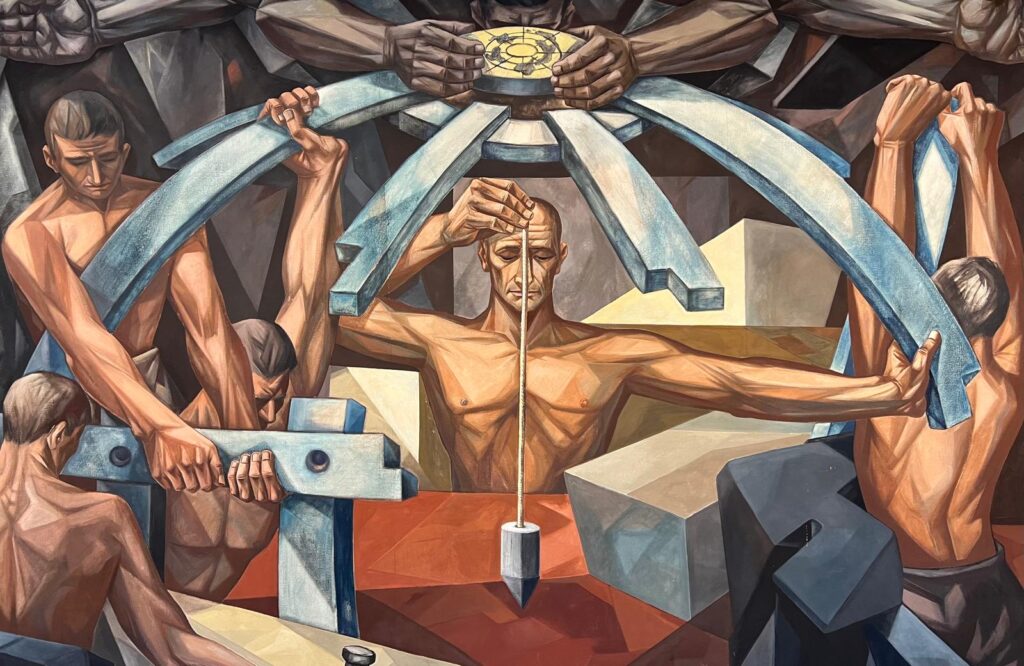The latest iteration of the Rome Civil Society Declaration on SDG16+ was launched today at the United Nations Headquarters in New York. A joint delegation from the Civil Society Platform for Peacebuilding and Statebuilding (CSPPS) and the TAP Network: Transparency, Accountability and Participation for the 2030 Agenda, presented the declaration earlier today during the SDG16 Conference, co-organised by UN DESA, the Permanent Mission of Italy, and IDLO.

Building on the foundations of previous editions, this year’s declaration is especially significant, emerging amidst a period of deep global turmoil. With only five years remaining to achieve the 2030 Agenda for Sustainable Development—and in the face of an unprecedented convergence of crises—CSPPS and the TAP Network have come together to gather input from civil society organisations (CSOs) worldwide on how to accelerate action on SDG16+ effectively.
Cordaid is a member of the CSPPS and a proud host and coordinator of the Platform.
SDG16+ at a Crossroads: Challenges Amid Global Crises
As the world moves closer to 2030, the gap between global commitments and tangible action towards peaceful, just, and inclusive societies continues to widen. Armed conflicts are escalating in both frequency and intensity, driven by new and protracted crises that increasingly transcend borders.
Fragile and conflict-affected settings are under mounting pressure, with rising displacement, the spread of small arms, and the collapse of local governance structures. Civilian populations—particularly women, children, and marginalised communities—are bearing the brunt of this violence, which is rising in tandem with global military spending.
Meanwhile, civic space is shrinking at an alarming rate. Across the globe, repressive measures are silencing dissent and curtailing activism. This erosion of fundamental freedoms has become widespread, even in long-established democracies. As civil society organisations face criminalisation and defunding, their capacity to deliver essential services, promote accountability, and foster inclusive governance is severely compromised.
These political and security crises are further compounded by the climate emergency, which exacerbates resource scarcity, displacement, and social tensions, especially in fragile contexts. Yet the global response remains dangerously inadequate. The international financial system, already falling short of what is needed, prioritises short-term security interests over long-term development. Official development assistance is in decline, and justice systems remain chronically underfunded. The result is an increasingly unmoored world, where impunity grows, civic trust erodes, and the foundations of peace, justice, and inclusion are dangerously weakened.
Turning Commitments into Action
In the face of growing global instability, the 2025 Rome Civil Society Declaration on SDG16+ issues an urgent appeal to governments, multilateral institutions, donors, and all stakeholders: we must decisively reorient global priorities towards peace, justice, and inclusion. The time for incremental responses has passed. Only bold, coordinated, and systemic action can address the root causes of conflict, strengthen institutions, and uphold the rights and dignity of all people.
This call begins with a demand to reverse the alarming trend of militarisation. Resources must be redirected from excessive military expenditure towards peacebuilding and conflict prevention. Community-based, locally led efforts must be recognised and supported as the backbone of peaceful societies. No peace process can succeed without inclusive participation and accountability grounded in international law.
Equally urgent is the need to reform the broken global financial system. The international community must ensure adequate, predictable, and accessible funding for civil society, particularly in fragile contexts. This requires moving beyond rigid, short-term project funding towards long-term, flexible investments that empower local actors. Transparency, accountability, and inclusive civic participation must lie at the heart of how development resources are mobilised and used.
Fundamental freedoms and civic space must be protected and expanded. Civil society is not a peripheral actor but vital for democratic resilience, service delivery, and social cohesion. Governments must safeguard the rights to freedom of expression, assembly, and association, and resist the normalisation of repressive tactics. Legal and political frameworks must ensure meaningful participation for all, especially historically excluded groups.
Finally, access to justice must be prioritised. Far too many people worldwide remain locked out of fair, accessible, and effective justice systems. Governments and donors must invest in grassroots justice initiatives, informal and customary mechanisms, and people-centred policy frameworks that embed justice across all dimensions—social, economic, environmental, and beyond. Upholding and strengthening international justice institutions is essential to ensure accountability and reinforce the rule of law.
This Declaration serves as a roadmap, calling for renewed and sustained commitment. It highlights the continued relevance of SDG16+ in today’s global landscape. It should act as a compass, guiding efforts to navigate present crises and pursue a more peaceful, just, and inclusive world in the long term.
Click here to endorse the 2025 Rome Civil Society Declaration on SDG16+.